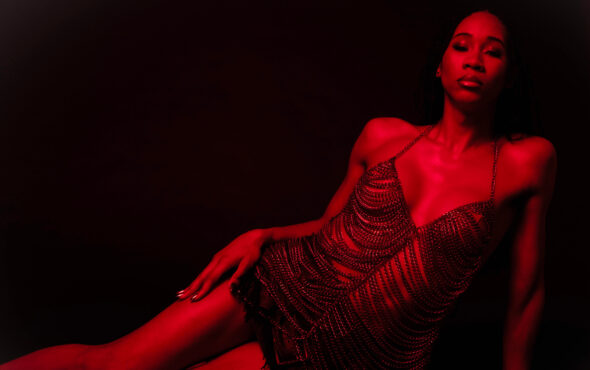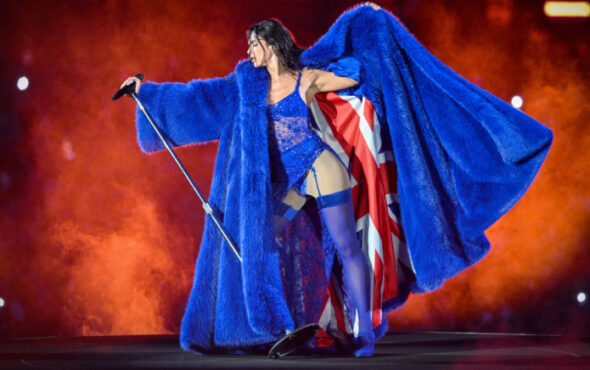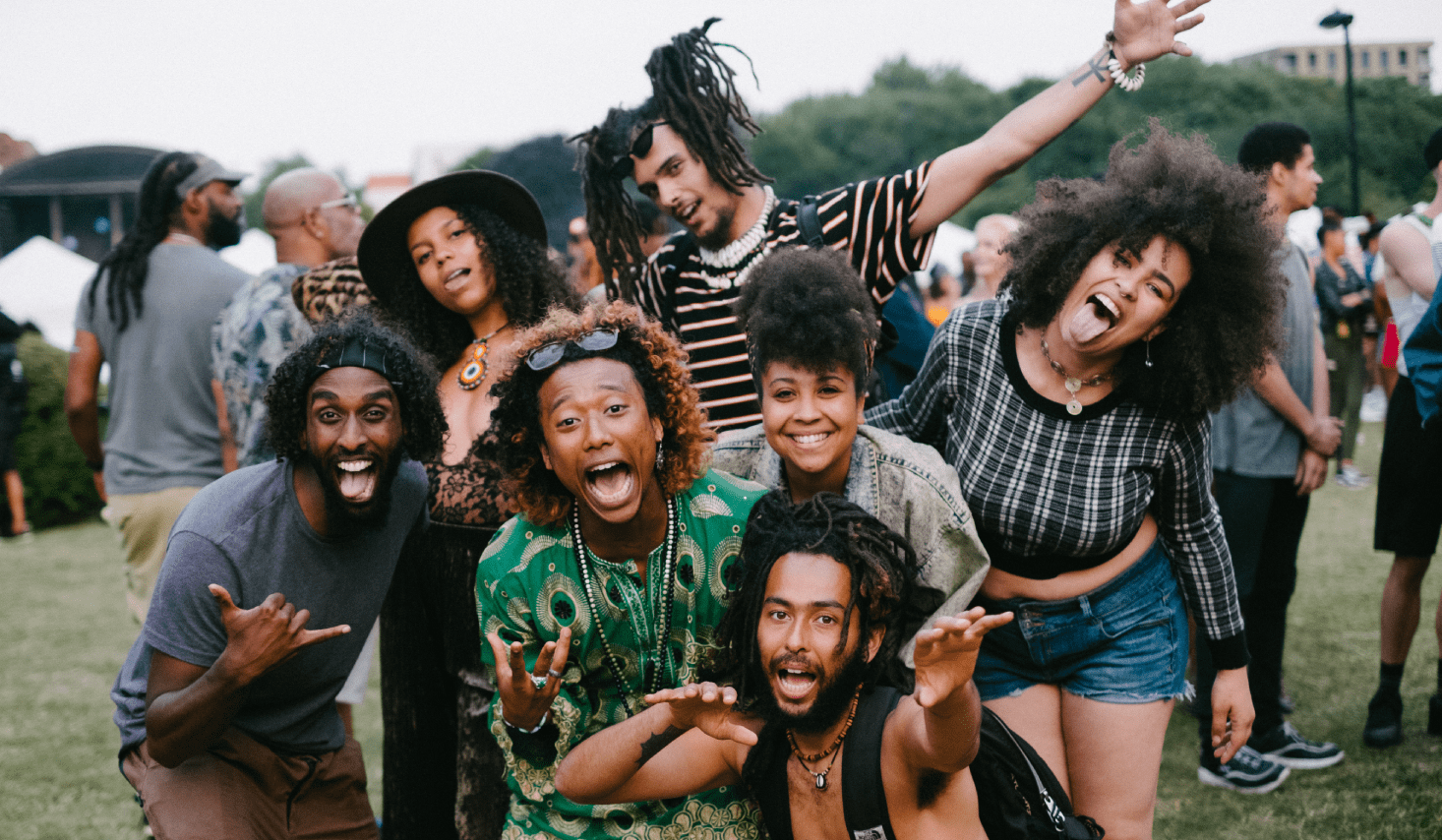
Life’s brevity is an inescapable, undeniable truth that breeds a universal human desire to leave a lasting impact on the world. We grapple with life, knowing our time to make a difference is limited—a notion that takes greater significance for those from marginalized communities. By living within structures whose purposes are to shorten the lives of those who lie at the bottom of socially-constructed hierarchies, many of us are made aware of our mortality long before reaching adulthood.
For people of colour within the LGBTQ+ community, this is compounded by the fact that generations before us had multiple restrictions placed upon them, further limiting their ability to cement their work in a way that benefits future generations. Section 28, the ostracization from the white gay community, and limited access to healthcare experienced by our elders have made it difficult for BIPOC queer individuals to find hyper-visible role models who share their identities. This lack of representation hinders future generations’ ability to envision themselves creating lasting legacies.
Co-founded by Lady Phyll (Phyll Opoku-Gyimah) in 2005, UK Black Pride’s (UKBP) mission is simple: strength through unity. It began as a safe space for Black queer women and soon became an annual celebration of LGBTQ+ individuals from African, Asian, Caribbean, Latin American, and Middle Eastern backgrounds. Since then, it has grown into Europe’s largest celebration for queer BIPOC, last year attracting over 25,000 attendees in its first in-person celebration after COVID-19.
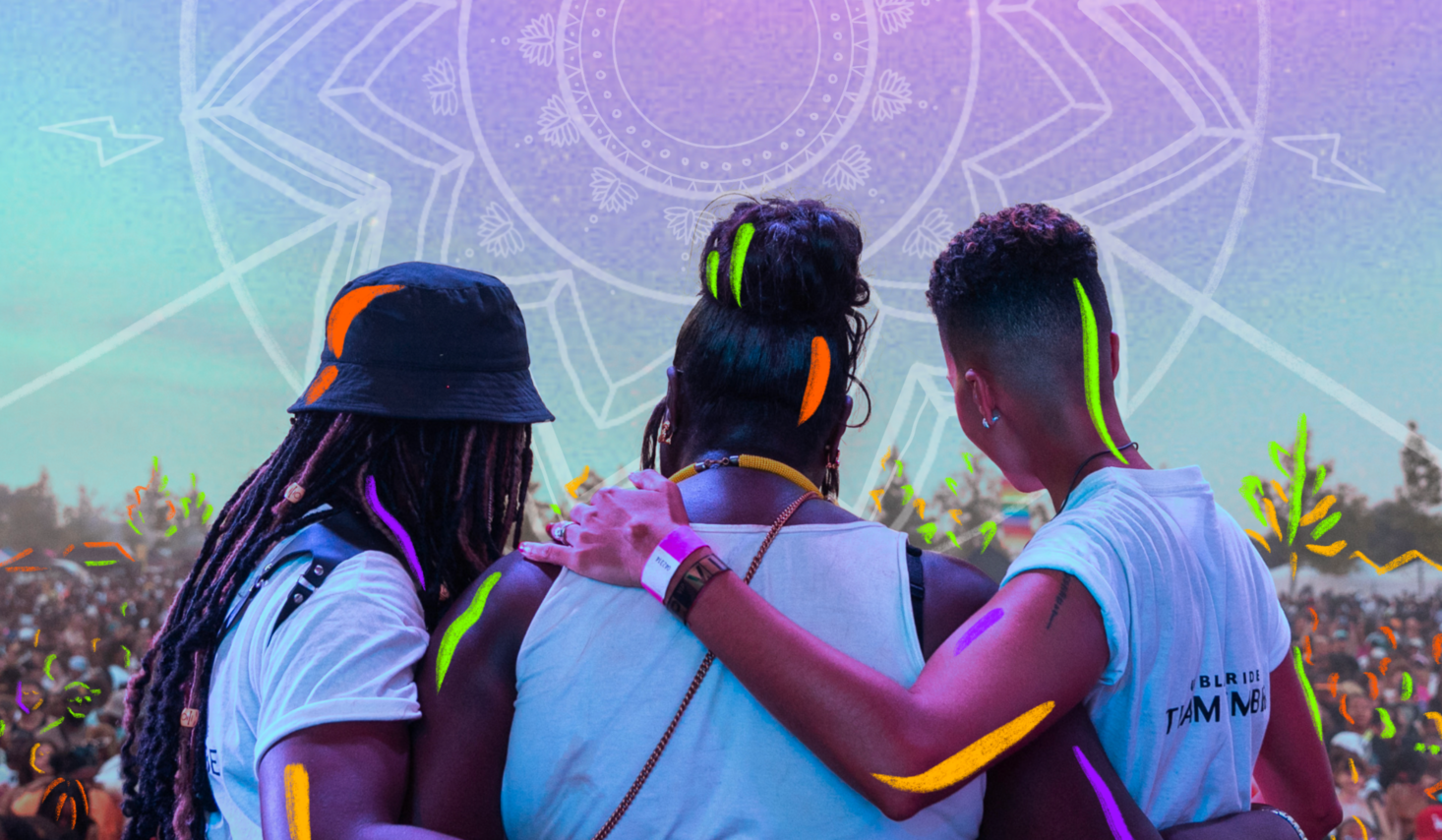
UKBP’s theme of this year’s protest and celebration is LEGACY. The organisation states: “LEGACY symbolises 18 years of awe-inspiring progress. It pays homage to the giants who paved the way for us and embraces the responsibility of empowering future generations to take ownership and fearlessly push for change.”
The importance of UKBP resonates strongly with Sam, a 22-year-old content creator and aspiring writer/director, who says: “UKBP is important because it offers the community a space where we truly feel seen and validated.” He continues: “As Black queer people, we so often have to compromise ourselves to fit into certain spaces. So having a space where our intersecting identities are celebrated is of high importance. We have a space where we can just be ourselves.”
It’s a sentiment shared by 34-year-old Christania, the Editor-in-Chief and a founding member of AZ Magazine, an online publication committed to amplifying LGBTQ+ Black and PoC people. Christania tells me: “The experiences of queer and trans-Black and PoC people are unique, and it’s important that we celebrate Pride in a space that overlaps with our cultural heritages. Especially as mainstream LGBTQ+ events can oftentimes be hostile towards QTIBPOC.”
On a more positive note, 54-year-old Marc Thompson, Director at The Love Tank, and co-founder of PrEPster and Black & Gay Back in the Day, says: “UK Black Pride doesn’t come from a place of deficit.” He elaborates: “It’s that we’re creating this space solely because other spaces don’t serve us, it’s because we want to celebrate. It’s a chance for us to be around our people.”
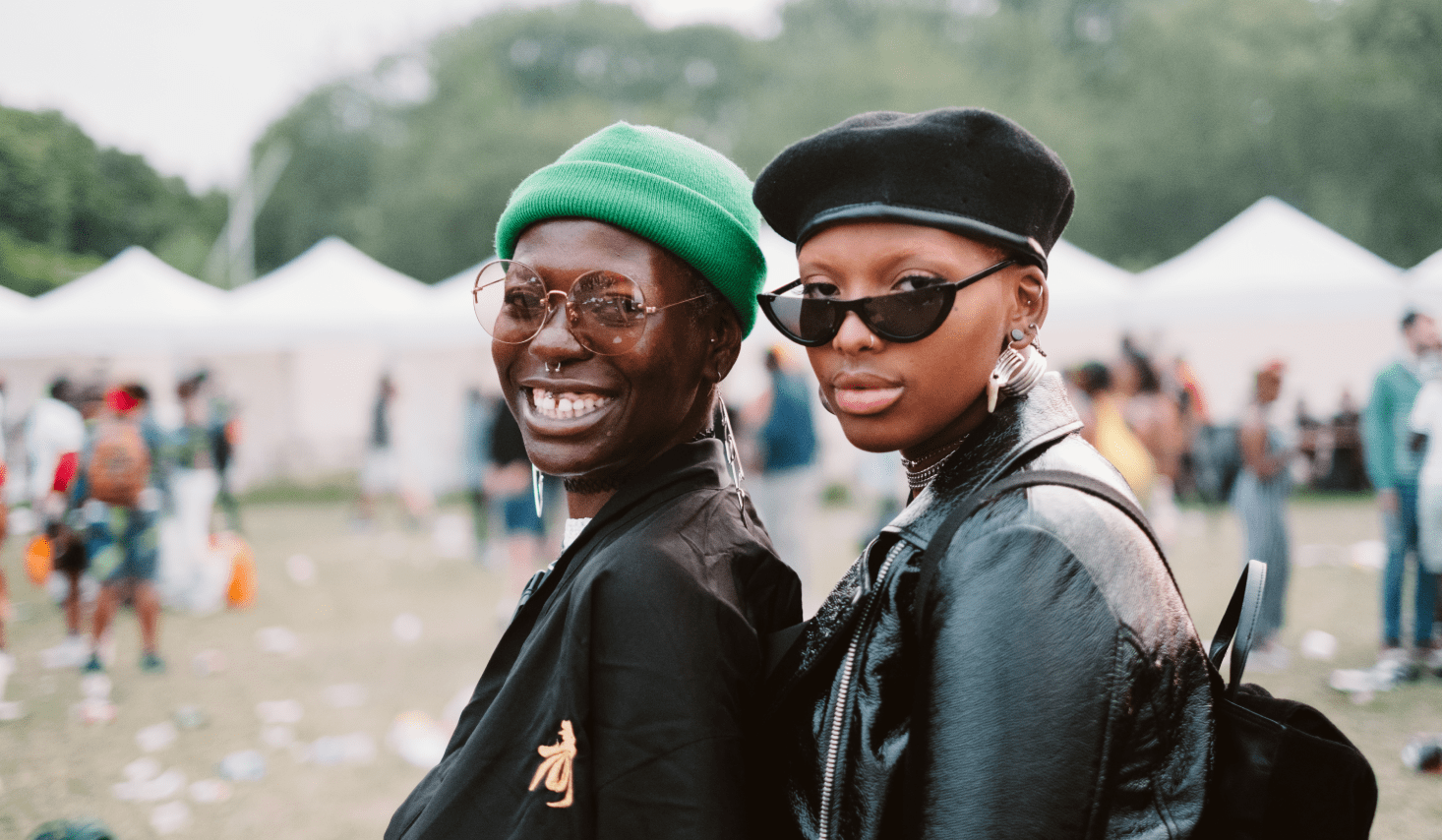
When thinking about how this year’s theme of LEGACY fits into UKBP’s mission statement of maintaining strength through unity, three questions come to mind:
Where did we come from?
Where do we stand today?
How do we imagine the future?
Building a legacy is not solely about obsessing over what’s to come; it’s also about appreciating the importance of our past and present. It requires us to honour our predecessors and how their actions have benefited us today. It’s impossible to conceptualise how to build a legacy without being intentional in unifying generations and finding strength through intergenerational dialogue. UKBP is one of the few, large-scale, central community spaces where multiple generations of queer people of colour come together, celebrate identities, and resist the oppressive forces sought to divide.
I attended my first UKBP in 2018 when I was still in university, justifying my attendance to my parents as me being a ‘really good ally’. When I arrived, I was immediately made aware of how limited my knowledge of Black British queer histories was. It feels ridiculous to say now, but back then, I’d never given much thought to the fact that older Black queer women existed, so I was shocked to see people of varying ages in attendance, buoyantly dancing, jovially cheering, and infectiously grinning. I was embarrassed by my sheer ignorance, but unfortunately, not surprised – age segregation within communities is normal and has been exacerbated in recent years due to the technological revolution, creating discrepancies in experiences and how we communicate with others. In the LGBTQ+ community specifically, a lot of events and interactions are age-segregated, and generational siloes are hard to penetrate.
Despite UKBP being founded in 2005, Black people in Britain have been celebrating themselves at Pride celebrations for decades, a fact which Marc doesn’t hesitate to remind me. “Black people always had a presence at Pride; we’ve always tried to make our voices heard. We worked with the Pride organisers to make sure that there was a safe space for Black folk who attended.” Recognizing that UKBP is not the first celebration of Black queer people does not remove its importance at all, as Marc elaborates: “It was founded to create a space for Black LGBTQ+ people. The need to have something separate which celebrates us is very important.”
Marc’s observations show how important the idea of legacy is, celebrating those in our community whose sacrifices have contributed to creating a society in which organisations like UKBP can grow to a great scale, “there were people doing the work for decades before UKBP, and their work should be recognised when thinking about legacy.”
In the present day, Sam is humbled by the work done by generations before. “It’s important to know your own history because you don’t know where you will go in the future unless you can recognize your past. I can’t even imagine what it was like for those growing up in the late 20th century when many of them were attacked for being themselves. It’s important that as Gen-Z we acknowledge how far we have come; there have been so many sacrifices that have gotten us to this point.”
Christania also recounts how much the wider scene has grown in tandem with the expansion of UKBP. “The Black LGBTQ+ community has always been present, but there has been immense growth in the spaces available for Black queer and trans people. There are countless club nights, sober spaces, book clubs, podcasts, and pop-up events.”
UKBP went from a group of Black women on a bus to Southend, to celebrating its 18th birthday in Queen Elizabeth Park, situated within a cultural calendar boasting a myriad of events catered to queer PoC throughout the year. The rise of UK Black Pride proves that our existence in multitudes can no longer be denied, a fact celebrated by Marc, who notes: “There are more of us than there ever was. We have this really rich, massive, diverse community.” As our stories are highlighted both in the past and present, the formation of identities and community-building efforts is nurtured. Sam has been moved by this transformation, remarking: “To see it go from being an underground event to being in Queen Elizabeth Park shows the power that we as Black queer people possess and signals a greater move to more acceptance. I just know it’s going to continue to grow.”
It’s mind-blowing levels of progress achieved in such a short space of time, but there is still a long way to go before we can confidently feel like our community has been accepted by wider society. Just recently, the event was moved a day early to avoid a clash with football fans in order to protect the safety of UKBP attendees from members of the public. Lamenting on this, Sam shares: “We as a community are still under threat. There is still so much ignorance and hate against us.”
Looking ahead to the future, building a legacy takes centre stage, as UK Black Pride places a strong emphasis on reshaping historical narratives and stories surrounding the LGBTQIA+ community in Britain. By celebrating the achievements and contributions of Black queer pioneers, UKBP aims to ensure that future generations find inspiration in a diverse array of role models to look up to. As the organisation continues to grow, Christania hopes that “the original audience who UK Black Pride was intended for is still centred”, with Marc also noting that “more could be done to make it more accessible to the older generation”.
In its 18-year run, UK Black Pride has evolved from a pioneering initiative into a transformative force that inspires new generations of activists and advocates. Christania finds the theme of legacy fitting for this very reason, stating: “It’ll be amazing to hear what people think of UKBP in another 20 years, but I imagine that they’ll recount how they felt when they attended, the incredible experiences they had, and the chosen family that they made.” As UKBP continues to thrive, it shapes the future of BIPOC LGBTQ+ communities, offering a legacy of empowerment, unity, and resilience that will inspire generations to come. It is no longer just an annual celebration; it stands as a powerful testament to the enduring impact of community when identity is embraced wholeheartedly.

